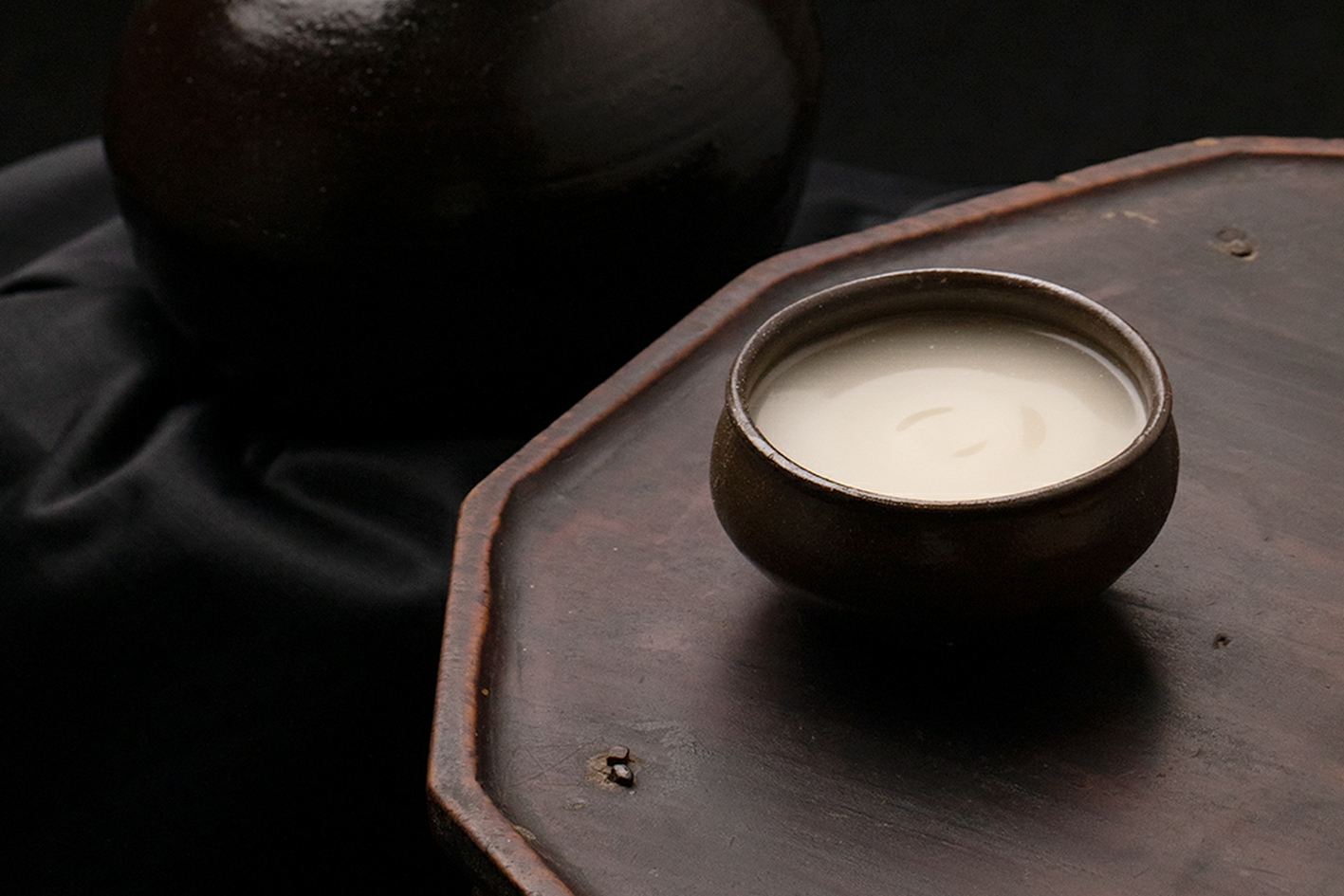
From fields to fine bars: the resurgence of makgeolli
" In Seoul and beyond, makgeolli bars (called makgeolli-jip) have surged in popularity "
For generations, makgeolli was the drink of farmers. Cloudy, fizzy, and slightly sweet, enjoyed after a long day's labour. Made by fermenting rice with nuruk (a traditional Korean fermentation starter), yeast, and water, this ancient rice wine is now making a confident return to the spotlight, stepping out from the long-dominant shadow of soju.
Unlike soju, which is clear and higher in alcohol, makgeolli is low-proof (usually 6–8% ABV), with a creamy texture and tangy flavour from natural fermentation. Its distinct milky appearance comes from the rice sediment left in the drink. This gives both character and a nutritional edge being rich in amino acids, fibre, and probiotics.
Traditionally home brewed or sold in local markets, makgeolli’s image was once rustic, even old-fashioned. However, a younger generation of Koreans, and a growing international audience, are rediscovering it as a craft beverage. Artisanal brewers are now experimenting with organic rice, alternative grains like black beans or buckwheat, and flavour infusions from ingredients such as chestnuts, omija berries, or even ginseng.
In Seoul and beyond, makgeolli bars (called makgeolli-jip) have surged in popularity. These venues pair the drink with hearty Korean anju (drinking snacks) like pajeon (spring onion pancake) or kimchi jeon. The unhurried ritual of stirring the bottle, pouring for others, and sipping slowly aligns perfectly with Korea’s communal dining culture.
Regionally, different areas of Korea offer their own takes on makgeolli. For instance, dongdongju, a similar but unfiltered version, is often chunkier and served with floating rice grains. In the southern provinces, sweeter varieties are favoured. Mountainous regions may lean toward more sour, robust profiles which reflect the local climate and cuisine.
Internationally, makgeolli is beginning to turn heads! Export markets, particularly in the US and Japan, are embracing it for its unique taste and health-conscious appeal. Korean chefs and mixologists are also incorporating it into cocktails, blending tradition with modern flair.
Though soju still dominates in volume, makgeolli is reclaiming its place at the Korean table. Not just as a nostalgic relic, but as a versatile, artisanal drink for contemporary palates. In doing so, it offers a taste of Korea’s rich brewing heritage. One cloudy glass at a time.
Prepared by a Chaîne News Online Staff Writer
Researched from various sources. E&OE